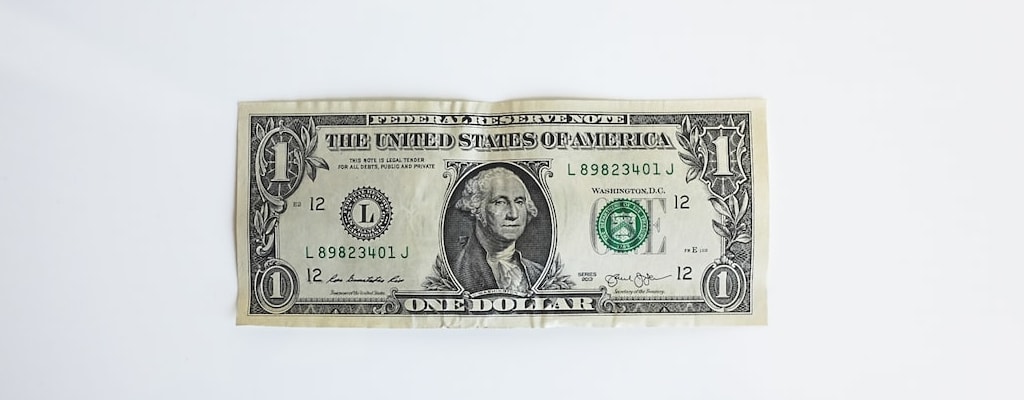pennies on the dollar: Idiom Meaning and Origin
What does ‘pennies on the dollar’ mean?
The idiom "pennies on the dollar" means to buy or sell something at a significantly discounted price, usually much lower than its actual value.

Idiom Explorer
The idiom "two ha'pennies for a penny" means getting a poor or unfair trade. It implies receiving less value for what is given or having a disadvantageous exchange.
The idiom "sell down" means to reduce or decrease the number or amount of something that is being sold. It typically refers to selling stocks or shares in a company.
Sell down has multiple meanings and uses. One of its primary meanings refers to gradually or systematically reducing one's holdings or disposing of assets, often in the financial context of selling stocks or investments. For example, an investor may decide to sell down their portfolio to mitigate potential risks.
The idiom "sell bargains" refers to the act of convincing someone to buy something at a lower or discounted price. It implies the skill or ability to negotiate a better deal for the buyer.
An idiom is a phrase that does not have a literal meaning. The idiom "save" means to keep money or resources for future use, or to rescue someone or something from danger or harm.
The idiom "rip off" means to take or steal something from someone in a dishonest or unfair way, often by charging a much higher price for something than it is worth.
The idiom "pin money" refers to a small amount of extra money that is earned for personal use or personal expenses.
The idiom "penny wise and pound foolish" means being frugal with small expenses while being wasteful with larger ones.
The idiom "penny for your thoughts" is a way to ask someone what they are thinking or feeling, usually when they appear to be lost in thought or deep in contemplation.
The idiom "pay through the nose" means to pay a very high price for something, often more than is considered fair or reasonable.
Scattered Cents Unearthed
The idiom "pennies on the dollar" is commonly used in the United States to describe a bargain or a great deal. It implies that something is being sold at an extremely low price compared to its actual value or cost. This idiom can be used in various contexts, such as real estate, sales, and financial transactions.
For example, in real estate, "pennies on the dollar" can refer to a property that is purchased at a fraction of its appraised value. It signifies an opportunity to acquire a valuable piece of property at a significantly reduced price. Similarly, in sales, this idiom represents a markdown or discount, indicating a substantial decrease in the original price of a product or service. It suggests that the buyer can get something of worth for a fraction of the cost.
In financial transactions, "pennies on the dollar" can be used to describe the acquisition of a debt or investment for a small fraction of its face value. It implies that the buyer is getting a favorable deal by paying significantly less than the actual amount owed or the original investment value.
The origin of the idiom "pennies on the dollar" can be traced back to the early 20th century in the United States. It first emerged in the context of auctions, especially estate sales, where items were often sold at heavily discounted prices. Over time, the phrase became a metaphorical expression and found its way into everyday language.
If we break down the literal interpretation of the idiom, it becomes clearer why it carries the meaning it does. Pennies are the lowest denomination of currency in the United States, representing the smallest monetary value. On the other hand, a dollar signifies a standard unit of currency. So, when we say "pennies on the dollar," we are referring to an extremely small fraction of the original value.
The meaning and usage of the idiom "pennies on the dollar" have evolved over time. While it originally referred to physical auctions, it now encompasses a broader range of transactions and scenarios. However, it still retains its association with a significant reduction in price or value.
The idiom "pennies on the dollar" captures the essence of a highly favorable financial opportunity or a remarkable bargain. It originated from estate sales and auctions and has become deeply embedded in American English. The continued usage of this idiom in everyday language demonstrates its lasting relevance and its impact on communication.
Now, let's explore how the idiom "pennies on the dollar" relates to two other idioms: "not worth a dime" and "two ha'pennies for a penny".
"Not worth a dime" is an idiom that is used to express the idea that something or someone is of little to no value. It suggests that whatever is being referred to is essentially worthless. When we compare this idiom to "pennies on the dollar," we can see that they both convey a similar sentiment - something being of very little value. However, "pennies on the dollar" specifically emphasizes a significant reduction in price, whereas "not worth a dime" highlights the lack of value in general.
"Two ha'pennies for a penny" is another idiom that relates to the concept of value. It refers to a situation where someone is asking for or expecting much more than what is reasonable. When we consider this idiom alongside "pennies on the dollar," we can draw a parallel in terms of the value proposition. "Pennies on the dollar" suggests getting something of great value for a fraction of the price, while "two ha'pennies for a penny" implies asking for more value than what is being offered.
These idioms, including "pennies on the dollar," contribute to the richness and diversity of American English. They reflect the unique perspectives and cultural values embedded in the language. Exploring their origins and usage enhances our understanding of language, culture, and the creative ways in which we express ourselves.
Example usage
Examples:
- He bought the vintage car for pennies on the dollar.
- After the company went bankrupt, the creditors only received pennies on the dollar for their outstanding debts.
- She managed to negotiate a deal where she bought the designer dress for pennies on the dollar.
More "Finance" idioms

